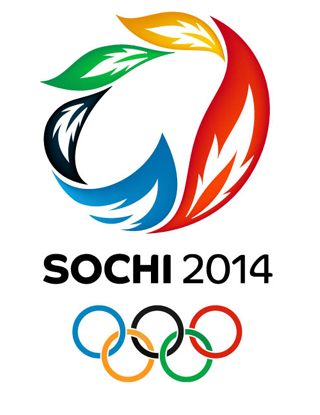Vladimir Putin’s Russia: Origins of icy struggle, part one of three
February 19, 2014
The winter Olympics has drawn the world’s focus to Sochi, Russia. The excitement over the games has been upstaged by controversy over Russia’s recent law against homosexual propaganda to minors.
The recent law has led to many individuals calling for a boycott of the Olympics. The Fair Games Project sent out a public service announcement titled “Russia declares discrimination newest olympic sport.” It is a video depicting Russian athletes beating homosexuals in front of Russian Federation flag-waving crowds.
At the center of the controversy over Russia’s policies is Vladimir Putin, the president of the Russian Federation. Many in the western media have criticized Putin.
He is the face of Russian policy and signed the law against homosexual propaganda. He has also been seen in Sochi at Olympic events. To understand the controversial events in Russia, it is necessary to know about Putin and Russia.
Putin graduated from Leningrad State University in 1975 as an international law student. He wrote a PhD thesis titled “The Strategic Planning of Regional Resources Under the Formation of Market Relations” and joined the communist party after graduation.
He began his career with the KGB starting in the second chief directorate in counter-intelligence. He was soon transferred to the first chief directorate where he monitored foreigners and consular officials in Leningrad.
He also maintained ties to his old university, keeping an eye out for potential KGB recruits. He resigned from the KGB in 1991 at the rank of lieutenant colonel on the second day of the KGB’s attempted coup against Mikail Gorbechev.
Putin worked his way up through the local government in Saint Petersburg (formerly Leningrad), and then went to work at the national level in Moscow where he oversaw the transfer of assets belonging to the Soviet Union and Communist Party to the Russian Federation.
In 1997, Boris Yeltsin, then president of Russia, appointed Putin deputy chief of presidential staff. One year later he was appointed head of the FSB, the successor of the KGB. That same year he was appointed a permanent member of the security council of the Russian Federation.
He was appointed one of the three first deputy prime ministers Aug. 9, 1999. On that same day, Yeltsin made Putin acting prime minister. Yeltsin later announced he wished Putin to be his successor and Putin agreed to run for president.
Putin was elected prime minister Aug. 16, 1999. He was not as well known to the Russian public and was not expected to last.
Yeltsin unexpectedly resigned Dec. 31, 1999, and, according to the Russian Constitution, Putin became the acting president. His first move as president was to drop charges of corruption against Yeltsin and his family.
Putin was elected president March 26, 2000, with 53 percent of the vote. During his first term, Putin won a power struggle with Russian oligarchs. It was thought that the hostage crisis involving Chechnyan rebels in a Moscow theatre which left 103 dead, would hurt his career, but Putin still received a record public approval rating of 83 percent.
Putin was elected to his second presidential term in 2004 with 71 percent of the vote. His second term was spotted by crises and conflicts over Chechnya.
In 2005, he created the National Priority Projects to improve Russia’s health care, education, housing and agriculture. He was criticized for his crackdown on media freedom by liberals in Russia and by westerners.
Several groups protested Putin during his second term, but his approval ratings with the majority held strong. The Russian Constitution prevented him from running for a third consecutive term.
The day after Putin gave the presidency to his successor, he was presidentially appointed as prime minister. He held this position between 2008 and 2012. During this time, the recession hit Russia hard. Putin was largely credited with Russia’s recovery and resistance to the recession.
In 2012, Putin was elected to his third, but non-consecutive, term as president. Thousands protested the election, but he still received 63.3 percent of the vote. Opponents accused Putin of corruption. Outside of Russia many were suspicious of the Russian democratic process.
Putin had the support of several oligarchs and of the Russian Orthodox Church. Amidst accusations of corruption, the stage was set (with Putin at the center) as the world watched the increasing levels of protest.



